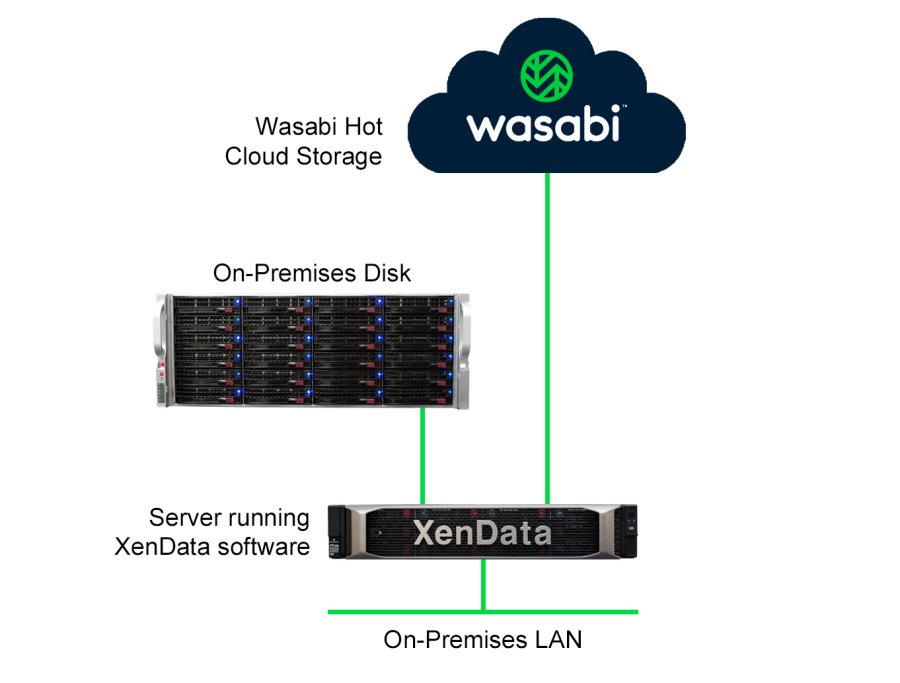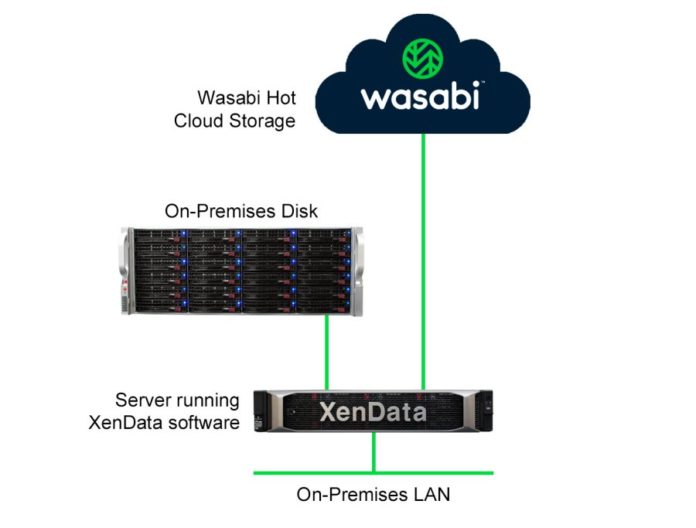XenData has teamed up with Wasabi to offer a hybrid cloud archive service that charges only for the volume of data stored in the cloud.
The new Cloud File Storage Service is operated by Wasabi, a cloud provider that sells storage services compatible with Amazon’s S3 storage platform, but with competitive pricing.
XenData develops storage solutions managing data on-premises and public cloud storage systems. As part of the service, customers get subscriptions for XenData’s Cloud File Gateway software that runs on Windows servers and allows any file-based application to read and write to the Wasabi object storage service.
XenData FS Mirror is also wrapped into the service. This enables any file-folder structure on the local network to be mirrored to Wasabi, providing data protection and disaster recovery copies of selected network file systems.

Flat rate
Similar products already exist but XenData and Wasabi claim their offering makes cloud storage practical for active archive applications because there are no data egress charges or API request fees. Customers pay only for the volume of data stored in the cloud at a flat rate of $0.01 per GB per month.
The Cloud File Storage Service enables customers to choose any of the three Wasabi regions: US-West, US-East and EU-Central. The new service can also be added to an existing XenData LTO data tape archive, allowing files to be easily copied or migrated to the Wasabi cloud.
XenData’s Cloud File Gateway supports standard network protocols such as SMB, NFS and FTP, and is fully compliant with the Microsoft security model based on Active Directory. The Gateway is said to be optimised for large files, making it ideal for industry sectors such as creative media, science and engineering.
Once in the cloud, remote sites and users can be provided with credentials to enable them to securely share file via read-only access to content uploaded via the Cloud File Gateway.
The XenData-Wasabi Cloud File Storage Service goes live on May 1, 2019.








